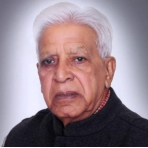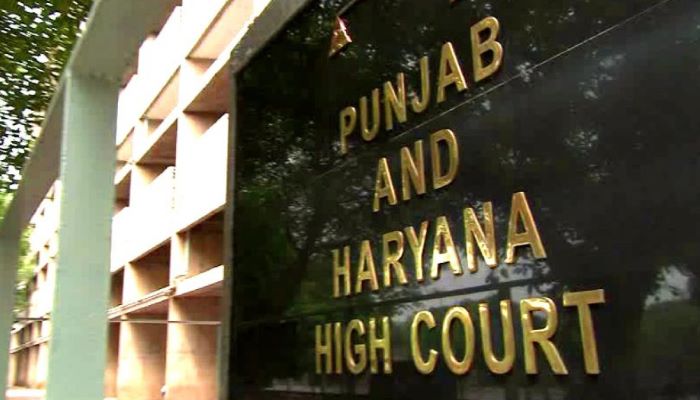Key Issues Pending in Haryana Assembly Elections (2024): An Analysis

Dr. Ramjilal, Social Scientist, Former Principal, Dyal Singh College, Karnal –(Haryana-India)
Email—[email protected]
(THE ASIAN INDEPENDENT)- Punjab was reorganized about 58 years ago on 1 November, 1966. As a result of the reorganization, Punjab, Haryana and Himachal Pradesh were established. After its establishment, Haryana established manifold in different dimensions-social, ,economic, political and educational development. Today, Ambala, Panipat, Faridabad and Gurgaon in Haryana are the centers of industrial development. These have attracted the attention of not only India but also abroad in the agricultural sector. The talents here have tried to establish themselves as the best from the country’s borders to cinema and sports. Despite this, there are many such issues in Haryana whose solution still remains in the hearts of the people of Haryana. Among these, first, separate capital of Haryana and rights over Chandigarh, second, SYL-water dispute, and third, separate High Court of Haryana are important issues (Dr. Ramji Lal, ‘Bachpan se 55 ka safar par baaki hai kasak’, Amar Ujala, (Karnal), 01 November 2020, p.2)
Separate capital of Haryana
The demand for the establishment of Haryana started rising in the third decade of the 20th century itself. The demand for a greater Haryana was supported by Mahatma Gandhi as well as many national leaders. In the 1960s, the demand for the reorganization of Punjab intensified. In 1950, Chandigarh was declared the capital of Punjab. On 1 November, 1966, Punjab was divided into three states–Haryana, Punjab and Himachal Pradesh. The capital of Himachal Pradesh is Shimla. Whereas the joint capital of Haryana and Punjab is Chandigarh, there is a dispute between Haryana and Punjab regarding Chandigarh. Many times the politicians of Haryana raise their voice: ‘Chandigarh is our, not half but whole’. On the other hand, the politicians of Punjab assure the people of Punjab that they will not give even an inch of Chandigarh’s land to Haryana. The dispute is ongoing and will continue. A solution does not seem possible in the near future. Many governments have come and gone in the Centre and the states – Haryana and Punjab. But the issue of Chandigarh has not been resolved till date. As a result, the people of Haryana are repeatedly troubled by the fact that Haryana does not have a separate capital.
SYL-Water Dispute
There is also a dispute over the water of Sutlej between Haryana and Punjab. Both Haryana and Punjab hold a leading position in the agricultural sector in India and the demand for water supply from the farmers of both states is constantly increasing. Although the SYL canal is 214 km long, its work was to be completed in 1986. This matter went to the legislatures, Parliament and the Supreme Court many times. But, even after the Supreme Court’s decision, it could not be resolved. Due to lack of water, farmers and factories of Haryana are suffering from huge losses. We believe that while solving this problem, the cooperation of the farmer leaders of Haryana and Punjab should also be given.
Separate High Court for Haryana
The matter of a separate High Court for Haryana is being hotly debated and discussed at this time. Therefore, we will describe this matter in detail for our readers. After the people’s revolution of 1857, the administration of India came directly under the control of the government of England. The government of England thought that it was not appropriate to use the army repeatedly to strengthen imperialism in India and to control the people. As a result, the British government en acted the Indian Penal Code 1860 (IPC 1860) and the Indian Police Act 1861. After several amendments, it continues even today despite more than 160 years having passed in the current century. On the basis of these, the modern judiciary was started to resolve the disputes of the people. The Kolkata High Court was first established in 1862.It was followed by the High Courts in Mumbai (1862) and Madras (1862), Allahabad High Court (1866), and Bangalore High Court (now Karnataka High Court (1884).In other words,these are the five oldest High Courts in India. The Lahore High Court was established on 21 March 1919.
On 15 August, 1947, we got freedom as a divided nation between India and Pakistan from British imperialism and feudal exploitation of Indian Nawabs,Princes , and Kings. Under Section-9 of the Indian Independence Act 1947, a separate High Court of East Punjab was established in Shimla. Its jurisdiction included the areas of present Punjab, Delhi, Himachal and Haryana. We want to inform the readers that the Constitution of India came into force on 26 January, 1950 and on 17 January, 1955, Chandigarh High Court was transferred from Shimla. At present, there are 25 High Courts in India.
Haryana was established on 1 November, 1966. Not only the capital of Punjab and Haryana is common, but the High Court of both the states is also common which is called as the Punjab and Haryana High Court. It is the biggest irony that Chhattisgarh, Himachal Pradesh, Jharkhand, Manipur, Meghalaya, Sikkim, Tripura, Uttarakhand etc. are such small states which have their own separate High Courts and Capitals.
According to Article-214 of the Constitution of India, every state should have its own High Court. The Punjab and Haryana High Court was established in 1966 as a temporary arrangement but its continuation even after almost 6 decades does not seem appropriate. As a result, Haryana and Punjab should have their own separate High Courts.
Due to Haryana and Punjab being a joint High Court, there is delay in the judicial process. Scholars believe that delay in justice is practically equivalent to injustice. Giving justice to the public is the best work of every welfare and justice-oriented state. Consequently, in this situation, getting justice to the public seems like a dream. If separate High Courts are established for both the states, then the cases will be divided in the two different High Courts and the public will get quick and cheap justice. From time to time, voices are raised by lawyers, intellectuals and politicians for the establishment of a separate High Court for Haryana. The Haryana Assembly had unanimously passed the proposal for a separate High Court in March, 2002 and December, 2005, but whether the government at the Centre was NDA or UPA, the proposals of the Haryana Assembly were not accepted. The then Chief Minister of Haryana, Manohar Lal, while advocating for a separate High Court, has told the Central Government that, “In the year 2013, separate High Courts were established for Meghalaya, Manipur and Tripura…. This (division) was done when out of the total pending 52,897 cases in the Guwahati High Court, there were only 812 cases from Meghalaya, 3,794 from Manipur and 6,393 from Tripura… But out of the total 2,79,699 cases pending in the Punjab and Haryana High Court, Haryana has 1,40,359 cases. This is more than 1,24,575 cases of Punjab.” By March 2024, the number of pending cases in the Punjab and Haryana High Court reached 6,50,000. About 40% of these pending cases are related to Haryana. The situation is even more serious in the subordinate courts of Punjab and Haryana High Court. For example, 8 lakh cases are pending in the subordinate courts of Punjab and 14 lakh cases are pending in the subordinate courts of Haryana. If separate High Courts are established for both the states, then there will be a reduction in the number of cases and the public will get quick and cheap justice. To provide quick and cheap justice to the people of Haryana, only a separate High Court is not enough, but if the location of the High Court is Chandigarh or Panchkula, then a separate bench of the High Court should be established in Gurugram for the districts of Gurugram, Faridabad, Rewari, Mahendragarh, Sirsa ,and Fatehabad .Additionally,subordinate courts in Haryana need reforms and drastic changes in the working of judges also.
The then Chief Minister, Manohar Lal said, “We believe that a separate High Court for Haryana can be established very easily in the premises of the Punjab and Haryana High Court, for this the building, staff and other infrastructure can be divided in the same way as was done in the case of Vidhan Sabha and Civil Secretariat.” Although the then Chief Minister, Manohar Lal and Prime Minister Narendra Modi are friendly, but despite this, the central government of Prime Minister Narendra Modi, like the government of Atal Bihari Vajpayee or the government of Dr. Manmohan Singh, did not pay any attention to the demand for a separate High Court for Haryana.
The central government should find a permanent solution to these issues. But for this, strong will power, intention and policy are required among the political leadership. To solve these problems, leaders will have to abandon regionalism and other narrow-mindedness. But the way the “vote bank theory” is adopted by the central and state governments, the solution of these problems does not seem to be happening soon. To resolve these demands, the public should agitate peacefully and put pressure on various political parties to make these demands the main issues in the 2024 Haryana Assembly elections.
(लेखक, हरियाणा: तब और अब, कुरुक्षेत्र, 1967, पुस्तक के सह लेखक हैं)








